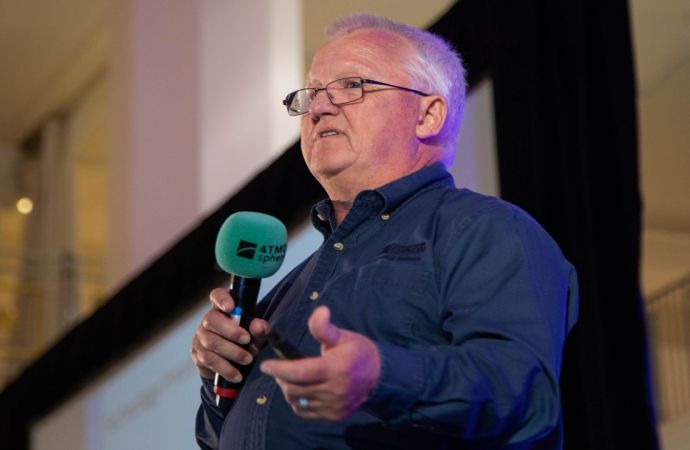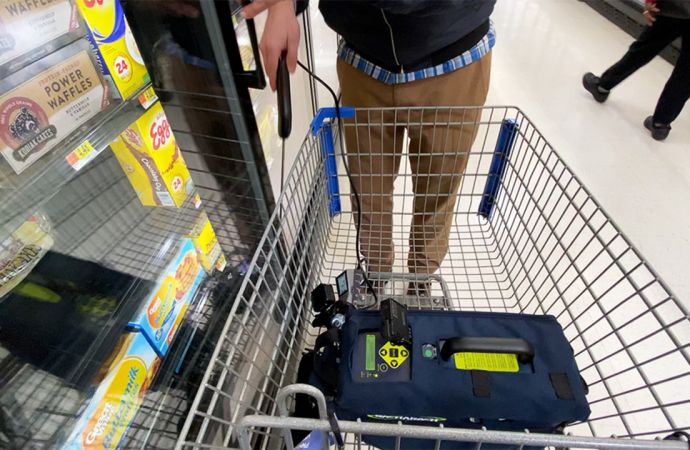At the 33rd Open-Ended Working Group (OEWG) meeting of the Parties to the Montreal Protocol held on 24-28 June 2013, Parties for the first time started a formal discussion on financial, legal and technical aspects of reducing climate warming HFCs. A lack of political will and financial assurances is, however, preventing certain Parties from moving on this.

Formal discussions related to addressing the rapid growth of high-GWP alternatives to ozone depleting substances, the growth of which is a direct result of the phase-out of ozone depleting substances, represent one of the essential developments at the 33rd Open-Ended Working Group (OEWG) held in Bangkok, Thailand.
Whilst India strongly voiced their reservations on adopting an amendment to the Montreal Protocol to phase-down HFCs, the establishment of a formal discussion group to discuss financial, legal and technical aspects of reducing the consumption and production of HFCs using the mechanisms of the Montreal Protocol is a significant result of the meeting and good start for further discussions.
Willingness to reduce HFCs globally depends on availability of financial resources
As highlighted by Brazil, there is a significant uncertainty related to how the reduction of HFCs would be financed and which mechanism would be used. This lack of clarity and financial assurances slows down the political willingness to reach an agreement on addressing HFCs globally and resolving this aspect might unlock the discussions on amending the Montreal Protocol.
The insecurity lies also on the side of the developed countries who are the contributors to the Multilateral Fund of the Montreal Protocol. The extent of the necessary additional contributions would have to be examined in detail to alleviate this uncertainty.
Sceptical countries concerned with availability of low-GWP technology
Despite the availability of low-GWP technologies in many sectors in developing and developed countries that have proven to be energy efficient, safe and technically feasible as highlighted especially by several delegates, certain parties tend to disregard this and claim that such technologies are still not available.
In particular, India's assertions regarding the non-existence of technically feasible, economically proven, environmentally friendly and safe alternatives were in contradiction with the successful rollout of hydrocarbon-based air-conditioners by Indian manufacturer Godrej, whose production this year has increased ten-fold as opposed to last year, reaching 25,000 units without any recorded accidents.
Several other developing countries are also concerned about the availability of technology in their regions, especially for high ambient temperatures. Parties are likely to request the Technology and Economic Assessment Panel for more information at the next meeting of the Parties to the Montreal Protocol in October 2013.
Relationship between Kyoto and Montreal Protocols
Some arguments were put forward at the meeting that the United Nations Framework Convention on Climate Change (UNFCCC) is the right place to take action on HFCs. However, it is widely accepted that the Montreal Protocol is very well equipped to deal with these gases, thanks to its the institutions, expert scientific and technical advisory bodies, financial mechanisms, consensual and cooperative processes, and strong record of success in dealing with production and consumption of HCFCs. A suggestion was put forward that a decision on approaching the UNFCCC be adopted at the next meeting of the Parties in October 2013 so that it can be discussed later at the Climate Change Conference (COP19) in November 2013.
In May 2013, the European Commission proposed a decision for the 19th Conference of the Parties (COP19) urging the Montreal Protocol to undertake a global phase-down of the production and consumption of HFCs.
Whilst India strongly voiced their reservations on adopting an amendment to the Montreal Protocol to phase-down HFCs, the establishment of a formal discussion group to discuss financial, legal and technical aspects of reducing the consumption and production of HFCs using the mechanisms of the Montreal Protocol is a significant result of the meeting and good start for further discussions.
Willingness to reduce HFCs globally depends on availability of financial resources
As highlighted by Brazil, there is a significant uncertainty related to how the reduction of HFCs would be financed and which mechanism would be used. This lack of clarity and financial assurances slows down the political willingness to reach an agreement on addressing HFCs globally and resolving this aspect might unlock the discussions on amending the Montreal Protocol.
The insecurity lies also on the side of the developed countries who are the contributors to the Multilateral Fund of the Montreal Protocol. The extent of the necessary additional contributions would have to be examined in detail to alleviate this uncertainty.
Sceptical countries concerned with availability of low-GWP technology
Despite the availability of low-GWP technologies in many sectors in developing and developed countries that have proven to be energy efficient, safe and technically feasible as highlighted especially by several delegates, certain parties tend to disregard this and claim that such technologies are still not available.
In particular, India's assertions regarding the non-existence of technically feasible, economically proven, environmentally friendly and safe alternatives were in contradiction with the successful rollout of hydrocarbon-based air-conditioners by Indian manufacturer Godrej, whose production this year has increased ten-fold as opposed to last year, reaching 25,000 units without any recorded accidents.
Several other developing countries are also concerned about the availability of technology in their regions, especially for high ambient temperatures. Parties are likely to request the Technology and Economic Assessment Panel for more information at the next meeting of the Parties to the Montreal Protocol in October 2013.
Relationship between Kyoto and Montreal Protocols
Some arguments were put forward at the meeting that the United Nations Framework Convention on Climate Change (UNFCCC) is the right place to take action on HFCs. However, it is widely accepted that the Montreal Protocol is very well equipped to deal with these gases, thanks to its the institutions, expert scientific and technical advisory bodies, financial mechanisms, consensual and cooperative processes, and strong record of success in dealing with production and consumption of HCFCs. A suggestion was put forward that a decision on approaching the UNFCCC be adopted at the next meeting of the Parties in October 2013 so that it can be discussed later at the Climate Change Conference (COP19) in November 2013.
In May 2013, the European Commission proposed a decision for the 19th Conference of the Parties (COP19) urging the Montreal Protocol to undertake a global phase-down of the production and consumption of HFCs.
MORE INFORMATION
Related stories



